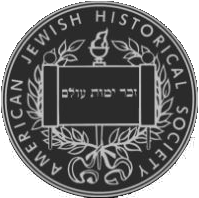“Remarkably prescient…”
– The New York Times
“A deep dive into a strange, history-shaking year.”
– TIME
“Strikingly relevant to current events.”
– Montgomery News
“Concise and smart…”
– The Forward
1917: How One Year Changed The World
On View September 8 – December 29, 2017
1917: How One Year Changed the World looks back 100 years to explore how three key events of 1917—America’s entry into World War I, the Bolshevik Revolution, and the issuing of the Balfour Declaration, in which Great Britain indicated support for a Jewish homeland in Palestine—brought about political, cultural, and social changes that dramatically reshaped the United States’ role in the world and provoked its most stringent immigration quotas to date.
The exhibition examines this consequential year through the eyes of American Jews, who experienced these events both as Americans and as part of an international diaspora community.
1917 features nearly 125 artifacts—including uniforms, letters, photographs, and posters—and interactive media. Visitors have the rare opportunity to view two original drafts of the Balfour Declaration, a decoded copy of the Zimmermann Telegram, the Treaty of Versailles, an Uncle Sam costume, the Medal of Honor posthumously awarded to Jewish WWI soldier William Shemin, Supreme Court Justice Louis Brandeis’s judicial robes, a postcard written by a young Golda Meir, a page from the original Johnson-Reed Act of 1924,
Sponsored By:




